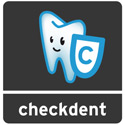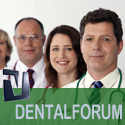-
How do braces from adults differ from braces for children and
>>These are the questions concerning most people
 You can get braces no matter how old you are.
You can get braces no matter how old you are.
When you are young then removable braces may suffice. While a person is still growing, it is usually enough to get a slight „impulse“ in the „right“ direction – e.g. from removable braces!
–
Once a person has stopped growing, then it is possible to get teeth into „order“ using fixed braces, no matter how old the patient is. Whether a retainer is necessary or not depends on whether the teeth are arranged in the best possible way – Category I.
–
A lot depends on musculature, the size of the tongue and a host of other factors: whether the teeth begin to wander after treatment or not. Ask your orthodontist what kind of treatment would be best for you.
–
Make sure to go to an orthodontist for treatment!
An orthodontist is a dentist who has had specialized training. Orthodontists usually only perform orthodontal work, they do not extract teeth or insert fillings. But they can answer your questions on whether the arrangement of your teeth is detrimental to your overall health. Some defective tooth positions may damage teeth, the jaw or the periodontal apparatus.
–
Unfortunately, „normal“ dentists are also allowed to perform orthodontal work without undergoing specialized training. They usually offer different types of treatment. Simply ask a practitioner what kind of training they have had.
 Treatment is usually charged on an annual basis.
Treatment is usually charged on an annual basis.
This is why treatment may take three or four years, or even more. It is better to pay for the treatment as a whole, an experienced practitioner should be able to estimate the cost before the start of treatment. Moreover, most defective tooth positioning can be treated in about one or two years, anything which takes longer requires an operation.
Treatment may cost around 4 000€ to 12 000€ (app. 5 900 – 18 000$) , depending on the severity of the defect and the type of braces used. Find out more about the lingual method, or „Incognito“ braces here.
Defective tooth placement can have many different causes, the most common being cavities in the milk teeth.
This often necessitates premature removal of milk teeth. However, milk teeth stimulate the jaw to grow. If this stimulus is lacking, then jaw growth slows down and the remaining teeth do not have enough space, resulting in over-crowding and displacement.
Good dental hygiene and well-planned treament can put a smile back on your face.
Good dental treatment requires an oral irrigator – more on that topic here.
VN:F [1.9.22_1171]
Rating: 0.0/5 (0 votes cast)
VN:F [1.9.22_1171]
 We would like to illustrate this in the picture on the left. The top picture shows a tooth sector. The first incisor on the left is slightly twisted, so that one corner is outside of the sector and the other corner is inside. In the picture below you can see the area, highlighted in red, where the tooth needs to be sanded down slightly so that the lumineer (in blue) can be applied to get a beautiful smile.
We would like to illustrate this in the picture on the left. The top picture shows a tooth sector. The first incisor on the left is slightly twisted, so that one corner is outside of the sector and the other corner is inside. In the picture below you can see the area, highlighted in red, where the tooth needs to be sanded down slightly so that the lumineer (in blue) can be applied to get a beautiful smile.








